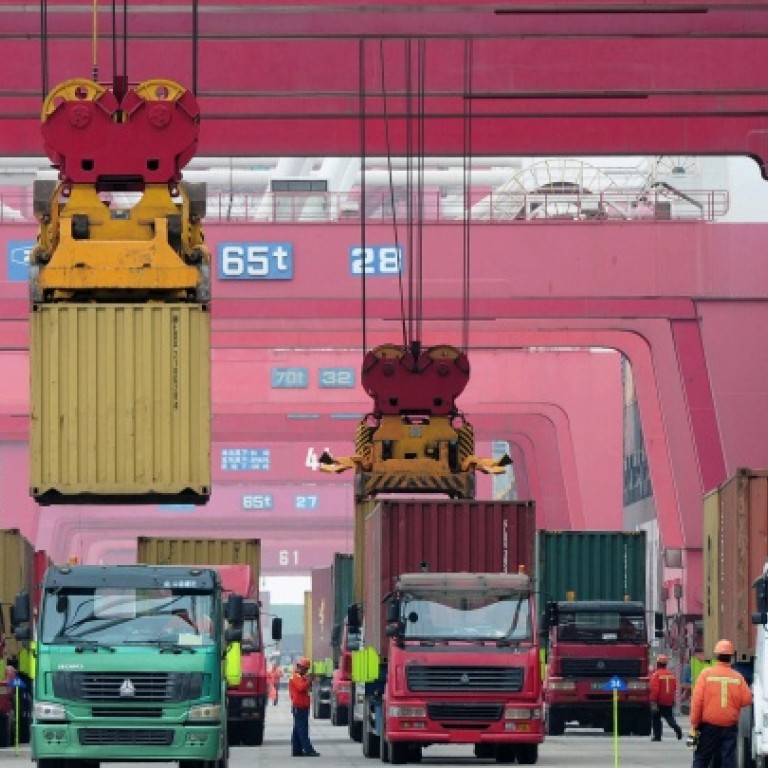
China needs a sense of crisis to reform its unbalanced economy
Hu Shuli says the global forecasts of darkerprospects give Beijing an opportunity to review its policies and redouble the push for reform
Global opinion on China's economic prospects appears to have soured of late. Credit ratings agency Fitch downgraded the country's long-term local-currency rating from AA-minus to A-plus last month, followed by Moody's lowering of the country's credit outlook from "positive" to "stable". Meanwhile, JPMorgan Chase has advised cutting Chinese stock holdings and, last week, a prominent article in argued that China was due for a "1997-style crisis".
This concert of bearish sentiment is a first in recent years. Why has it emerged now, in the wake of the global financial crisis, when the supercharged Chinese economy is being seen as a lifeline keeping the global economy afloat? Not surprisingly, the question has stirred debate among political and business circles at home, and some official media have reacted strongly.
The China bears based their analysis on this: China's economy is slowing, and massive local government debts could burden the national balance sheet, impeding the economy's balanced and stable growth. They see risks to China's financial system. On closer inspection, however, the analyses aren't all pessimistic. Though caution predominates, their warnings of trouble are less dire than at first thought. There is no need to overreact.
In fact, the considered views within China are even more negative. For example, JPMorgan's downgrade of Chinese A-shares from neutral to underweight will surprise no one at home. The stock market's sluggish performance in the past few years exactly reflected investors' low confidence. Moreover, worries about high local government debt and the ills of excessive capacity are commonly voiced at home, while the risks of a financial meltdown have never been far from policymakers' minds.
China should take the opinions of others in its stride, as a reminder for us to be more vigilant against potential dangers. Being overly sensitive to criticism is immature.
True, over the years there has been no shortage of subjective, over-the-top predictions of China's demise. In 1994, American scholar Lester Brown asked: "who will feed China?" In 2001, Gordon Chang predicted "the collapse of China" in five years. Facts have proven their hypotheses wrong.
These predictions of gloom should not worry China. Rather, it should concern itself with how to resolve the problems of its increasingly complex economy. It must not bury its head in the sand, for the longer it delays action, the more intractable the problems become. In this, China will be no exception: crisis will strike when the contradictions reach a breaking point. Reform is in a race to avert crisis.
China owes its economic success today to the process of reform and opening up. The threat of implosion in the aftermath of the Cultural Revolution forced the leadership into a consensus to push for change. Since then, every breakthrough has been the result of meeting the challenge of a crisis with reform. The experience of the past 35 years tells us that crisis can be averted only through reform. This is how we can boost growth and improve people's well-being.
External shocks can provide impetus for change, but they may also delay critical reform. China was largely spared from the fallout of the Asian financial crisis in 1997, and again the global financial crisis five years ago. There are lessons to be learned. An external shock can push us to undertake reform. But at times when survival is at risk, policymakers may reach for temporary measures that run counter to the aims of reform and create longer-term problems, which unfortunately strengthen the old model of growth.
Policymakers must be wise in their judgment. They must not confuse short-term measures with long-term goals, promoting programmes that, as Premier Li Keqiang put it, later become "obstacles on the road towards market reform and development".
To many Chinese, the fact that China managed to escape the worst impact of the global financial crisis is proof that its economic system is perfect. Worse, they think the crisis has nothing to do with us.
This kind of view is harmful, because it blinds us to the deep-seated structural problems of China's economy, and how truly urgent comprehensive reforms and a transformation of China's economic model are. In this light, an international thumbs-down for Chinese prospects can be a good thing.
A looming crisis is proof that the current policy isn't working. To defuse the crisis, the government must plan ahead and learn to sharpen its sense of crisis. In today's context, this means it must fully understand the inherent risks of China's economic structure, and honestly review the successes and failures of its policies since the financial crisis.
China must put reform back on its agenda, and restart the engine for change.
This is the only way to resolve its economic contradictions, and the best response to outsiders' gloomy forecasts of its prospects.

